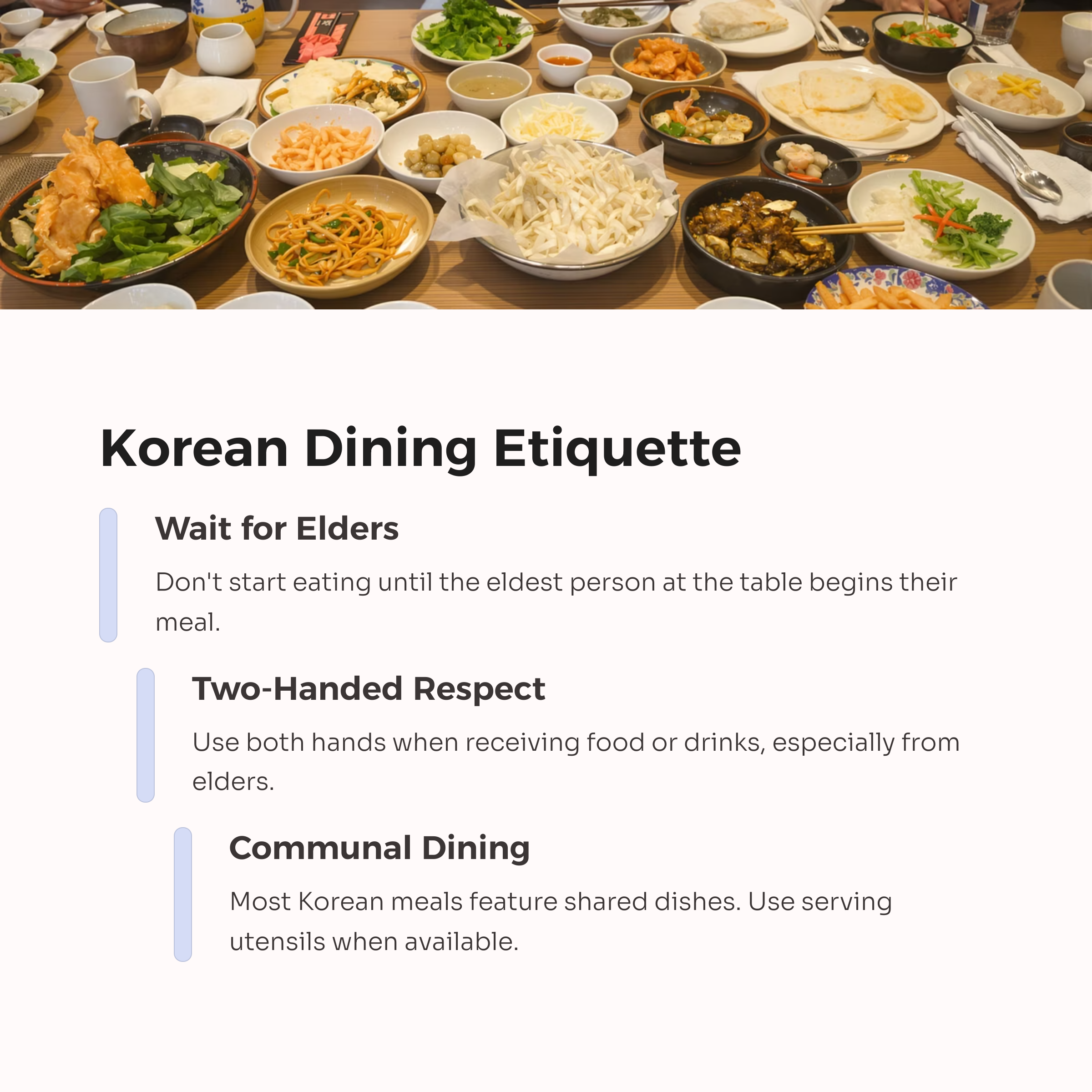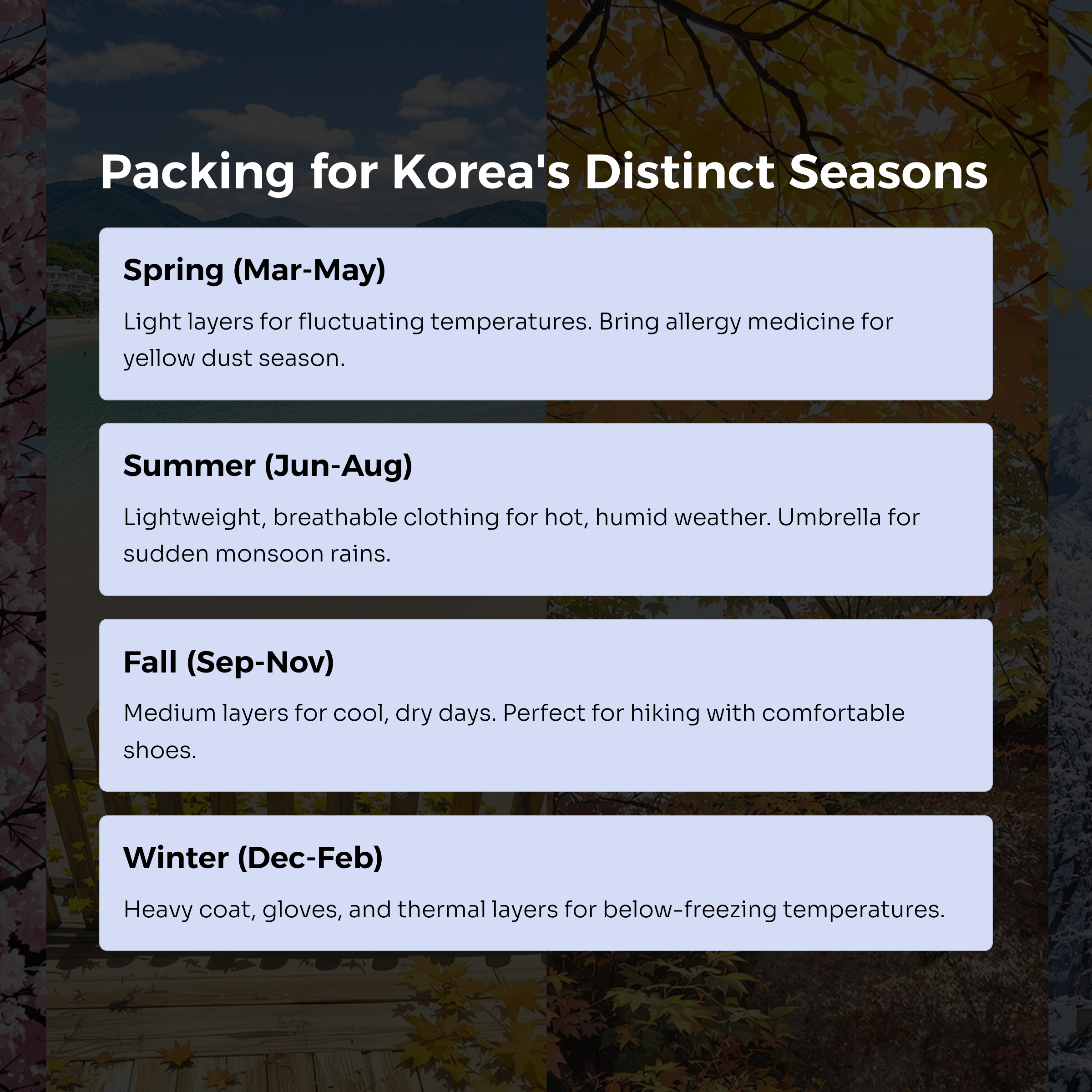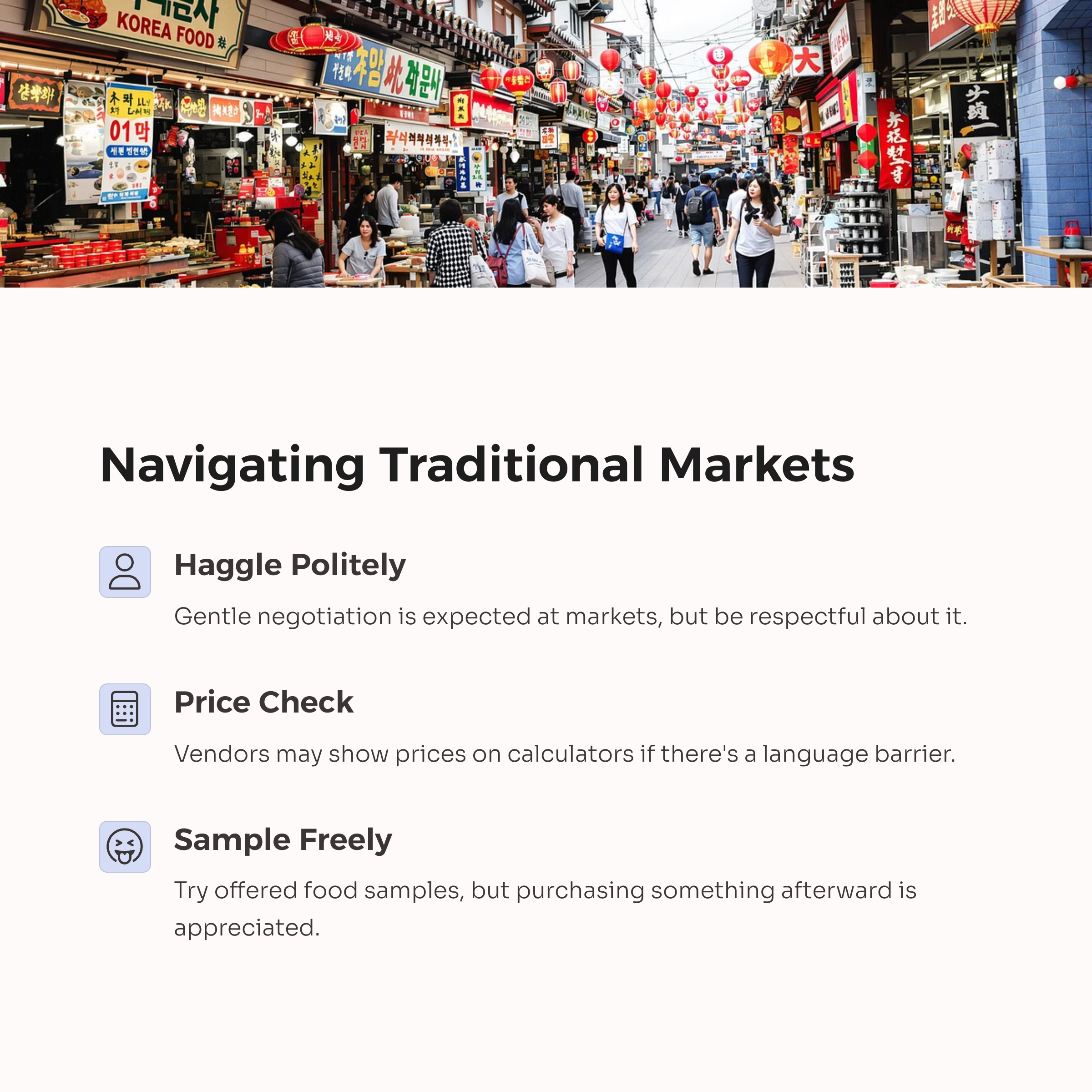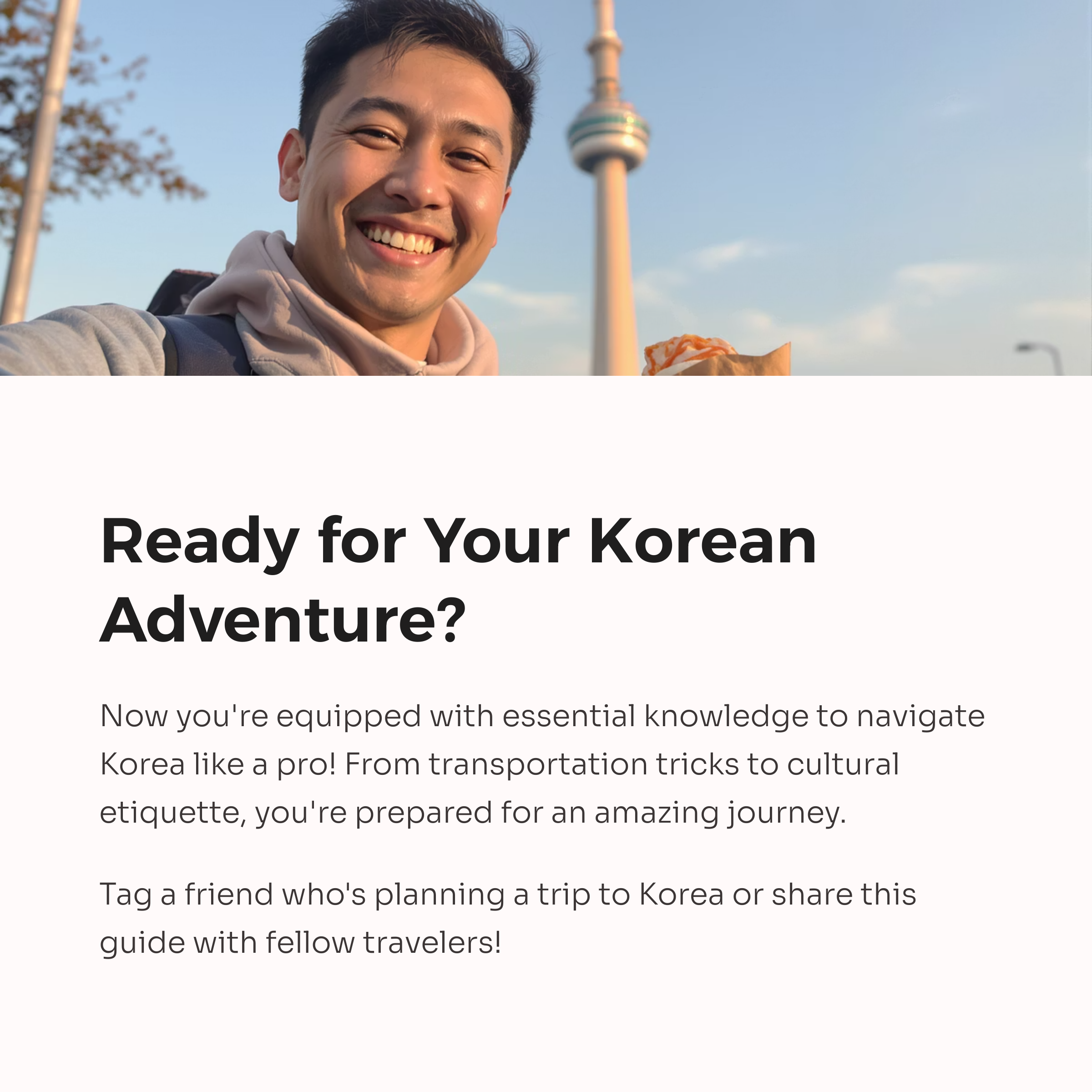
Essential Information to Know Before Visiting Korea
Language Barriers and Learning Basic Korean Expressions

English is not widely spoken in Korea,
especially among older generations and in rural areas.
Before traveling, learn basic Korean phrases like "Hello," "Thank you," and "How much is it?"
Even short phrases will help you communicate more warmly with locals.
Translation apps are very helpful as well.
We highly recommend Naver Papago!
Understanding the Public Transportation System

Subways, buses, and taxis are well-developed in Seoul and major cities.
Buying and using a "T-money card" makes traveling much more convenient.
Subway lines are complicated, but they are color-coded and numbered, making them easy to navigate.
Instead of Google Maps, use "Kakao Map" or "Naver Map" for better directions.
Payment Culture and Using Cash in Korea

Credit card payments are very common across Korea,
even in small cafes and local shops.
However, some traditional markets and small stores may still require cash.
Prepare small amounts of cash and exchange money at city centers rather than at the airport for better rates.
Korean Food Culture and Dining Etiquette

In Korea, side dishes are provided free with meals.
It is polite not to leave much food behind, so take only what you can eat.
Also, drinking culture is important:
When making a toast, it is polite to turn your head slightly to the side while drinking.
Never stick chopsticks upright into a bowl of rice, as it is considered rude.
How to Use Public Bathhouses and Jjimjilbangs

Jjimjilbangs are great, affordable places to relax.
There are separate sauna areas for men and women and communal spaces for everyone.
Before entering the bath, you must shower thoroughly,
and it’s considered bad manners to dip towels into the bath.
You can receive special clothing for the jjimjilbang at the entrance.
Tips for Using Wi-Fi and Mobile Data

Korea is often called the "Wi-Fi Heaven."
Free Wi-Fi is widely available in cafes, subways, and even on the streets.
However, public Wi-Fi can be insecure,
so renting a pocket Wi-Fi device or buying a local SIM card in advance is highly recommended.
This is especially useful when traveling to rural areas.
Basic Etiquette and Manners in Korea

- Lightly bow when greeting people.
- Use polite language when speaking to elders.
- Use both hands when handing over money or items.
Speaking loudly on the phone or making noise on public transport is considered rude.
Following basic manners will help you receive warmer hospitality.
Weather by Season and Travel Essentials

Korea has four distinct seasons.
Spring (Mar-May): Watch out for pollen allergies.
Summer (Jun-Aug): Very hot and humid, light clothes and sunscreen are a must.
Fall (Sep-Nov): Cool and clear, ideal for travel.
Winter (Dec-Feb): Very cold, so thick coats and gloves are necessary.
Always check the seasonal weather and pack accordingly.
Traditional Markets and Shopping Tips

Traditional markets are treasure troves of Korean culture.
We recommend visiting places like Gwangjang Market, Namdaemun Market, and Tongin Market.
Price negotiation is somewhat accepted,
but be respectful and avoid aggressively bargaining.
You might even get discounts for cash payments at some places.
Safety Tips for a Secure Trip

Korea is considered relatively safe.
Still, always watch out for pickpocketing and losing your belongings.
When returning late at night, taxis are recommended over public transport.
Be cautious of fake taxis and tourist scams in popular areas.
In case of emergencies, you can call '1339' for health-related assistance.




